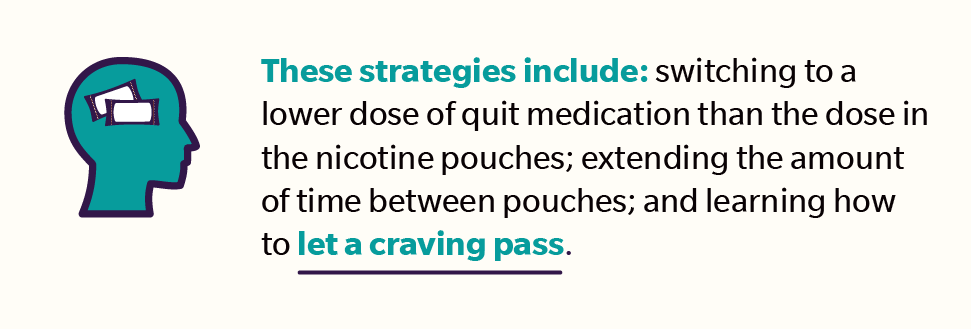Those working in white-collar professional services typically have lower rates of smoking and vaping than other industries. But a creeping trend of nicotine pouch use among workers in demanding industries, such as finance and technology, could be changing things.
What are Zyn and other nicotine pouches?
Nicotine pouches are tiny bags of nicotine that fit under the lip. Zyn nicotine pouches are one example of a popular brand in this space. Nicotine pouches hit the market in 2016 and since then, sales have skyrocketed. In its third quarter, Phillip Morris International sold 105 million tins of Zyn in the U.S., marking a 66% increase from a year earlier.
If all this has you wondering “what is in Zyn?”, “what are the side effects of nicotine pouches?”, and “should people be using Zyn to quit vaping or smoking?”, you are not alone.
Here are 4 things to know about nicotine pouches that research and science can currently answer.
1. Why are oral nicotine pouches popular?
For users, nicotine pouches are discreet to use and can deliver a short-term increase in concentration, buzz, and energy.
With upsides like this, it explains why nicotine pouches like Zyn keep getting more popular month over month. But there are downsides to nicotine pouches, too. Just as using nicotine pouches is on the rise, so are searches for help to quit them.
2. Do oral nicotine pouches like Zyn contain tobacco?
Zyn and other nicotine pouches are smokeless alternatives to tobacco. They contain a nicotine powder instead of a tobacco leaf. Nicotine concentrations vary across oral nicotine brands, with some containing nearly 12x the amount of nicotine in a cigarette.
In the U.S., for example, Zyn is sold in 3 and 6 mg strength. Other brands, such as On!, are sold in 1.5, 2, 3.5, and 8 mg, according to each brand’s website.
For comparison, the amount of nicotine delivered by a cigarette is roughly 1-2 mg per cigarette.
3. What are the long-term side effects of nicotine pouches?
Nicotine pouches may potentially be a reduced risk alternative for cigarette smokers or users of other oral tobacco products; however, the long-term health impact of using nicotine pouches is unknown.
One thing is for certain though, and that is nicotine pouches contain nicotine, which is a highly addictive chemical.
People who use nicotine often find they end up using more than they intended for a longer period of time. And when someone tries to quit nicotine abruptly, it can lead to uncomfortable physical and emotional symptoms like irritability, anxiety, increased appetite or weight gain, and insomnia—a condition referred to as nicotine withdrawal.
Another potential health impact of nicotine pouches is exposure to cancer-causing chemicals. A 2022 study of 44 nicotine pouch products and 2 nicotine-free pouches found that 26 of the samples contained cancer-causing chemicals.
4. Should people use Zyn to help quit vaping or smoking?
Oral nicotine pouches are not the same as quit smoking medications like nicotine patches or gum, which are approved and regulated by the Food and Drug Administration (FDA). Decades of research confirms that these FDA-approved medications are effective and safe to use long term, if needed.
Some people have thought about using Zyn to quit smoking, vaping, or dipping/chewing tobacco. Nicotine pouches like Zyn are NOT approved by the FDA as quitting medication. And because they have high concentrations of nicotine, users can be put at risk for nicotine addiction.
How to quit Zyn and other nicotine pouches if addicted
Quitting nicotine pouches can be challenging but the good news is that individuals can quit Zyn with similar strategies to quitting other nicotine products.
These strategies include: switching to a lower dose of quit medication than the dose in the nicotine pouches; extending the amount of time between pouches; and learning how to let a craving pass.
Support from other quitters can also be helpful through online communities, such as our EX Community.
Learn more about Zyn and other nicotine pouches.
EX Program addresses nicotine pouches and more
The EX Program team keeps the pulse of the ever-changing landscape of tobacco and nicotine products so we can best support individuals on their quitting journey.
We’re committed to staying current on the science (not just use trends) to bring forward evidence-based information that eliminates confusion around what’s safe for our clients’ employees, members, and families.
To see more of how our program operates with a deep understanding of today’s tobacco users to deliver meaningful outcomes, please contact us today.








